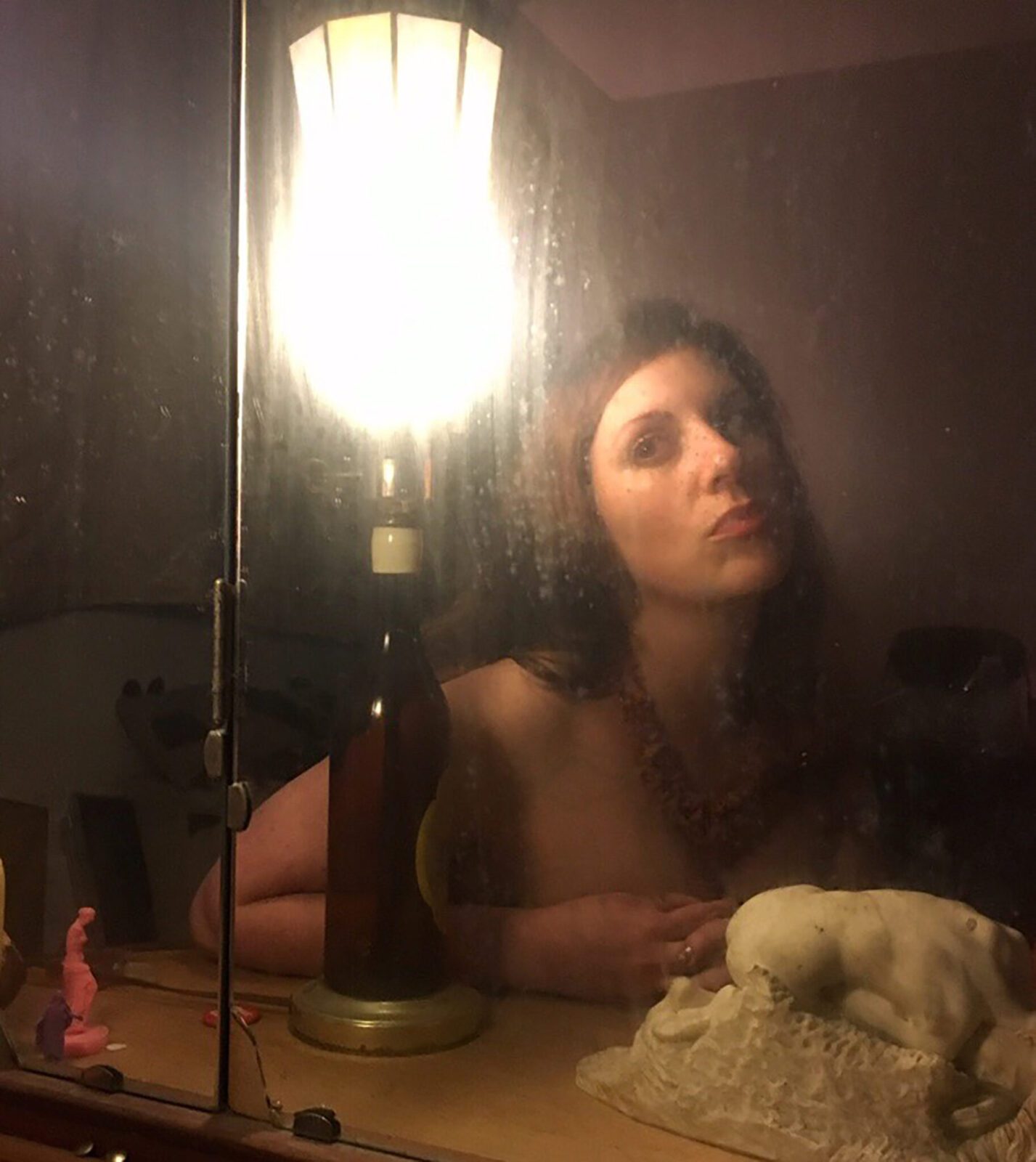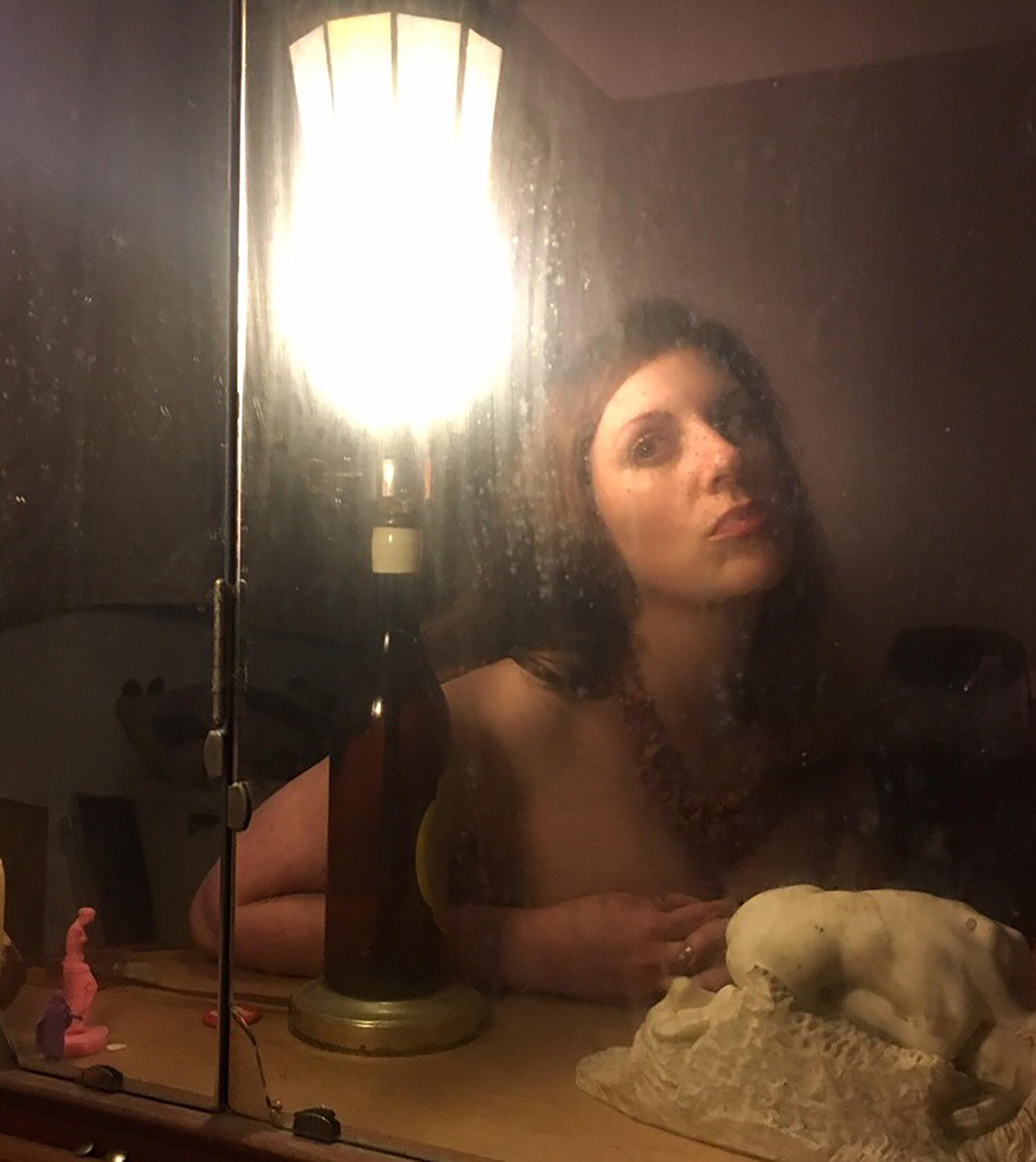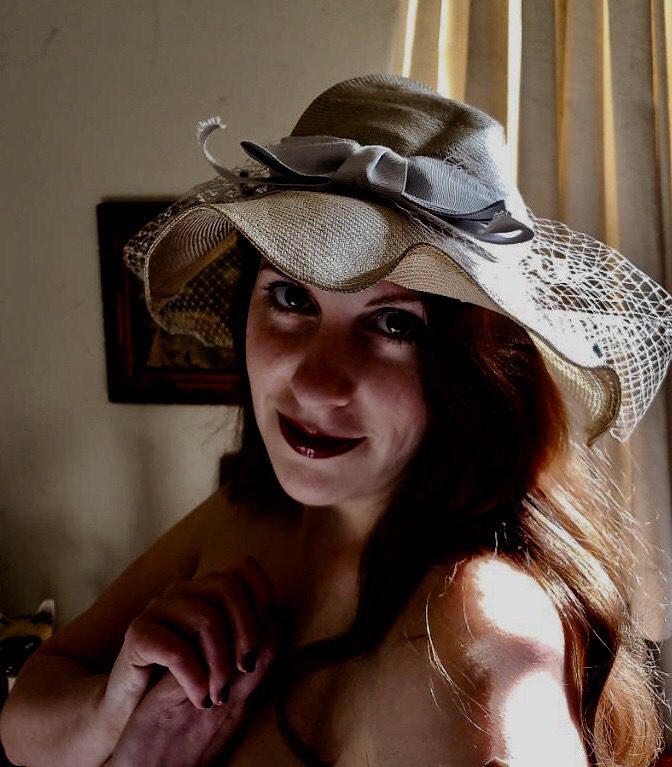PREMIERE: Grace Sings Sludge Keeps Creepin’ On in “Friend to All” Video


Recently, Grace Cooper officially became a children’s book author – by accident. For the physical release of her fifth solo album (and first recorded in a studio) as Grace Sings Sludge, Cooper illustrated a 32-page booklet, which, she explains, wasn’t deemed long enough to be registered with the Library of Congress unless classified as a children’s book. It is, perhaps, one of the most cryptically-titled children’s tomes in history: Christ Mocked & The End of a Relationship. Its illustrations are both grotesque and delicate: drippy demons and sinister saints; nude figures twisted in ecstasy, or misery, or both – it’s hard to tell which. Cooper’s lyrics are printed out, too, and they’re also a mishmash of the tender, the surreal, the horrific, and the humorous. “I’m either horror or comedy,” Cooper says. “I’m kind of a goofy person, but when I’m making anything, there’s no question it’s going to be creepy.”
Cooper grew up just outside Oakland in the East Bay Area. Her father is a guitarist, singer, and songwriter, but she says she was “too shy” to perform around the house and didn’t start making music until her twenties, after getting a job at Amoeba Records. There, she met Tim Cohen, who asked her to sing backup in the early days of The Fresh & Onlys, which got her used to performing in front of others; Cohen introduced her to Heidi Alexander, and eventually, the two formed whimsical garage-pop band The Sandwitches with Roxanne Young, playing their first gig in a bookstore. But all the while, Cooper recorded solo songs in secret. “After the Sandwitches, I just kind of went back to what’s a little more natural for me – recording at home by myself,” she says. That changed when The Sandwitches’ label, San Francisco imprint Empty Cellar Records, offered to put out her next record, and suggested she record it with Phil Manley at El Studio. Manley is well-known in the Bay Area for playing in bands like Trans Am, Feral Ohms, and The Fucking Champs, and Cooper says, “Something just felt right when his name was brought up.”
Though she’s more comfortable recording at home, she took studio prep seriously. “When I record myself, [the songs are] just skeletal sketches, they’re kind of a template and I find it as I go,” she says. “But this time I tried to map out some idea of what instruments I heard in my head, and I had the songs arranged in the order that I thought they should be in. We recorded them from start to finish in that order. We recorded pretty quickly, but somehow the record ended up being something that, in the time that’s gone by since recording it, I’m still completely happy with and I don’t have any regrets.”
Cooper has reason to be proud – she played every instrument on Christ Mocked, save for drums handled by Nic Russo, who also played piano on “Horror For People That Don’t Like Horror,” a nonchalant tale about the devastating embarrassment that comes along with first forays into physical intimacy. Though Cooper says she’s in her “comfort zone with buzzy, shitty sounding stuff,” this album brings out the peculiar beauty of her voice in ways previous DIY affairs didn’t quite capture; threaded with sparse guitar, meandering basslines, or dissonant piano, Christ Mocked is a bit reminiscent of early Cat Power, if Chan Marshall had somehow been more awkward (and obsessed with horror movies, religious iconography, and sketches of nude women). It’s set for release July 17th.
Whatever the professional process brought out in the music, it did nothing to temper Cooper’s weirdo aesthetic. Two of her favorite tracks are spoken-word recollections of vivid dreams she had, describing the travails of an undercover woman and and undercover man who are slowly disappearing (“Borderlands”) and “a condemned Disneyland/a perverted Swiss Family dream” (“The Hackers”). The latter ends with the veiled origins of Cooper’s early appreciation for horror films – she says she remembers watching Texas Chain Saw Massacre with her dad, also a horror buff, when she was just six.
That obsession surfaces again in the video for the album’s second single, “Friend To All,” Cooper’s “hokey noir take on disillusionment and disassociation.” She enlisted old friend Wesley Smith to direct and Jeff Williams to assist; though she hadn’t seen them in nearly fifteen years, it was a natural extension of their old delinquent ways, making gross, darkly funny short films as “Bad Habit Productions.”
“We were all very gothed out,” Cooper remembers. “We would skip school and go steal alcohol from Safeway and hang out on Monument Boulevard in Concord but we would always be doing something creative together. We might have been doing drugs and loitering but at least we were making really bizarre little movies.”
For “Friend To All,” the trio filmed in an garishly orange Motel 6 room and an abandoned incinerator building in Sacramento; Cooper looks put together with pin-up curls, red lipstick and vintage monochromatic suit sets, but in the ominous details, things begin to unravel. She smokes a cigarette, sprawled on a hideous bedspread, barely acknowledging the body wrapped in a sheet in the corner. And then suddenly, she’s naked in a bathtub smearing what looks like shit all over her face, dancing and weaving drunkenly in the street, and wearing a rather nightmarish mask as she tiptoes over trash in stilettos.
“Yeah, I don’t know what inspired that,” Cooper says of the mask. “I needed a last minute Halloween costume one year, and I just cut my pantyhose up and kept it in my underwear drawer. I still have it.” It made for a fitting prop – the song itself is about the disguises we put up in interacting with others, a riff on the old saying “A friend to all is a friend to none.”
If the mask represents someone pretending to be something they aren’t, the derelict buildings where the video was filmed are an astute parallel to the deterioration of those false relationships, crumbling into forgotten ruins. But the layers of symbolism may as well have been incidental – Cooper says she routinely puts on YouTube videos of urban explorers searching through abandoned structures to watch as she falls asleep. “I was very charmed by Sacramento and I really hope it keeps that old school sort of dilapidated feeling,” Cooper recalls. “I was happy as a clam being in this place, just trying to not step on needles and diapers, and there was nobody around. It was right next to apartment buildings too, that’s why there was so much garbage spillover. But it didn’t seem like anybody was really squatting there. The light was beautiful.”
Cooper usually works on her own videos, mostly alone in her apartment, like she did with the video for “Falling in love with him again was the most exciting time of my life,” because “It’s very low budget and I have complete creative control,” she says. Still, she manages to evoke something heartfelt and haunting, always remaining within her own eccentric aesthetic.
“I’m an odd duck – it’s just a culmination of who I am, how I grew up,” Cooper says. While she admits that forging her own path can be isolating at times – especially when it comes to booking shows in Oakland – she’s fine with defying comparisons. “I can’t do anything else,” she says. “I’m gonna keep keeping to myself because I’m happier doing it that way. But I want to be there for the weird outsider ladies.”
Who knows… maybe her odd children’s book will find its way to the right type of kids – ones that film darkly funny movies in abandoned spaces, write strange little songs, and go all-in on their most outlandish tendencies.

Follow Grace Sings Sludge on Instagram for ongoing updates.

